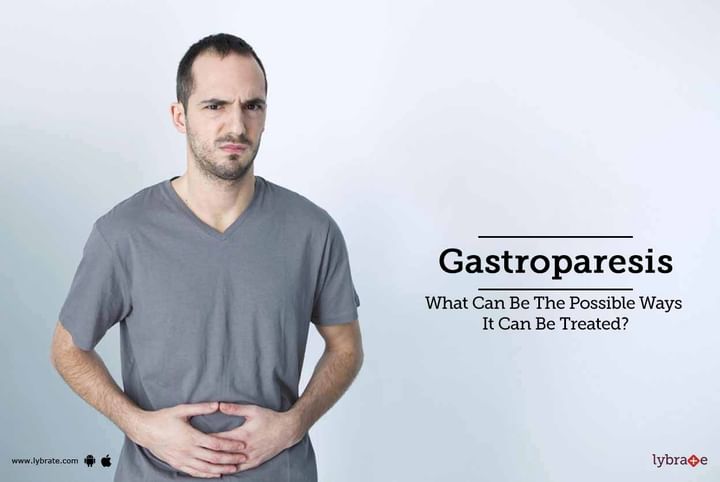Gastroparesis - What Can Be The Possible Ways It Can Be Treated?
Gastroparesis is a condition when your stomach feels full and heavy even after it has been more than a couple of hours after meal. Generally, it takes maximum 1 & ½ hours for the stomach to feel empty, but if the time taken for it is more, then this is a condition of gastroparesis. It means there is some change in your normal digestion process.
In this circumstance, the food in your stomach doesn’t digest easily and creates a lump. As a result, you have hard time digesting your food. It also means the nerves connected to the stomach are not functioning well. There are a number of reasons for which you can get gastroparesis.
- Diabetes is one of the most common causes of making you feel fuller.
- Disorders in the nervous system, mainly Parkinson’s disease or cerebral attack can create this problem.
- Some medicines, especially antidepressants or anti-inflammatory in nature and certain painkillers can cause this problem.
Gastroparesis shows a number of symptoms:
- Occasional vomiting as you feel unnecessarily fuller. When you vomit, it gives out chunks of undigested food
- A feeling of nausea
- You feel full after you have eaten very little
- Bloating and pain in your abdomen
- There is alteration in the blood sugar level
- You don’t feel like eating due to loss of appetite
- You lose considerable weight as you don’t eat much
- A possibility of suffering from malnutrition, again due to lack of appetite
How it can be treated?
When you identify the reason for gastroparesis, then treating it becomes easier. If diabetes or nerve disorder is creating the problem, leave it to your doctor to treat. For other causes like lack of appetite, there are some natural ways of treating it.
- Have frequent smaller meals. This way you don’t push yourself to eat much and at the same time, the body doesn’t lack nutrition and energy
- Avoid fibrous fruits
- Avoid high carbohydrate and high fat foods, which takes time to digest
- Intake foods which you can swallow, like soups or stew. They are healthy and are also easy to digest
If the problem still persists, consult your doctor who may prescribe some medicines to stimulate the stomach muscles. They generally have no side-effects. There are some medicines which can control your vomiting and nausea. There are some surgical treatments for gastroparesis, where the doctors place a feeding tube in your small intestine. A gastric venting channel is another option, which helps you to get relief from excessive gas formation in your stomach, thus accelerating the process of digestion. In case you have a concern or query you can always consult an expert & get answers to your questions!



+1.svg)
